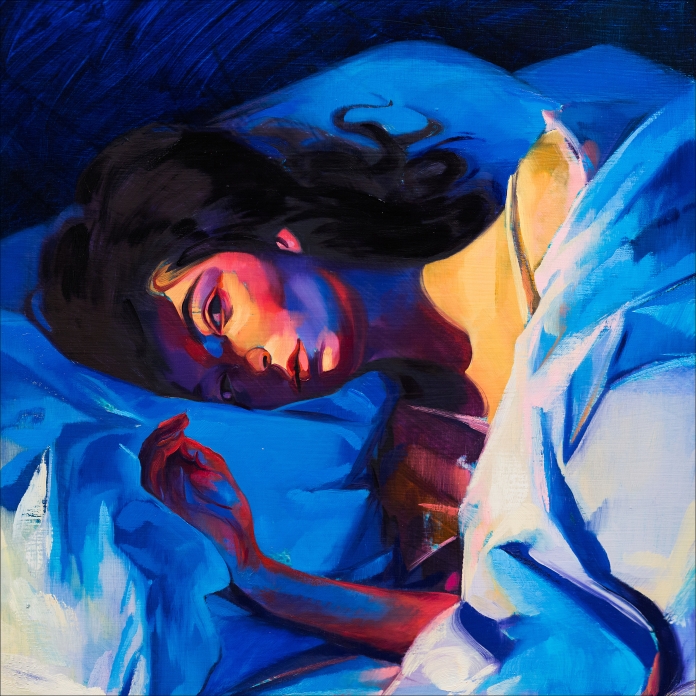
Lorde was never meant to be a star. Royals, her breakthrough hit was an antithesis to excessive materialism that overcrowded the pop radio, and Pure Heroine, the debut album that housed it similarly found her wearing teenage ennui and uncool lifestyle in her New Zealander suburban hometown like a badge of honor. But now that, ironically, the outsider has become a bona fide international pop star, where does she go from here? Does she join the zeitgeist she used to criticize or does she continue to be an anomaly whose cavalier attitude helps sell records?
Lorde seems less interested in answering those questions than in making an album on her own term — something she can afford to do now with commercial success under her belt. A self-proclaimed pop music consumer who reveres the art and science behind the craft, Lorde has always been an extremely gifted songwriter, deftly constructing lyrics with economical, unforced diction to vividly convey both universally relatable messages and personal specifics. And so she gathers materials from her newly embraced lifestyle as a famous adolescent and love for what she is doing and sets off on a new journey called Melodrama.
Compared to Pure Heroine’s car ride on tarmac streets, the journey of Melodrama feels intergalactic. It chronicles millennial life in all its glorious and shameful details, the scope so expansive it needs to be accompanied by relatively loud production from fun.’s and Bleachers’ Jack Antonoff, who is behind moderate pop hits such as Taylor Swift’s Out of the Woods. Yet true to her minimalistic root, Lorde frames the larger-than-life narrative in a single house party, circling through the arcs of having fun, falling in love, getting heartbroken, reflecting on self, and growing. All of these, like life itself, are not explored in a streamlined manner, and the iconoclastic disarray is perhaps Melodrama’s best attribute. Green Light tears into the speakerphone with fiery vengeance — Lorde breaks the lyrical rhyme by calling her ex a “liar” with snide panache, before she declares, “But I hear sounds in my mind / Brand new sounds in my mind,” over a house piano-driven key change that literally introduces new sounds to the song. As dramatic and jarring as it sounds, such sonic shift allows her to effectively pivot her songwriting perspective within a song. The first part of the six-minute-long dual track Hard Feelings/Loveless sees Lorde stare deep into her post-breakup wreckage and find the will to move on in solitude — the conflicting feelings echoed through creaking and clanking metal sound effects. The remaining two minutes, in sharp contrast, are all about going wide: Lorde, in sing-songy taunting voice, labels her generation as affectionless abusers who get high on emotionally torturing their lovers. In the album’s standout, The Louvre, her worldview is covered in pastel-colored sheen of us-against-the-world young love, but as the romance builds to its feverish peak, Lorde breaks the fourth wall saying, “Broadcast the boom boom boom boom / And make ‘em all dance to it,” and collaborators Flume and Malay begin descending the beat underwater. The song slinks beautifully between heart-on-a-string sentiment swirling inside her chest and hip-hop cool that she projects outward, before riding warm, swelling guitar off into the sunset.

Even amidst an overwhelming emotional rush, “I get caught up, just for a minute,” Lorde sings, as self-aware as she has ever been. A party, she says, is a mental exercise so she keeps her eyes open, her senses sharpened, and her pop sensibility intact throughout. At the height of the night, she knowingly commits to “blowing shit up” in the Tove Lo-assisted irrevocably catchy Homemade Dynamite and in Sober, observes the party like she would a ritual on an exotic tropical island: “These are the games of the weekend / We pretend that we just don’t care but we care.” Moments after the party dies down that leave Lorde by herself result in some of the most refreshing introspection without falling into ponderous self-indulgence. In Liability, she carves an empathetic message about self-love out of the personal turmoil that comes with fame, while Supercut is as very much breezy and perfect for the summer as it is honest at exploring inner peace and acceptance.
The fact that everything in the album conceptually takes place in a confined space of a party does not stop Melodrama from turning out to be a full-fledged coming-of-age journey that bursts at its seams in rich colors. And although collective pronoun “we” is still used as much as before, it is imbued with a greater sense of self, more pathos, and less camaraderie here than in Pure Heroine. Melodrama’s essence is perfectly encapsulated in the euphoric chorus of the final track, Perfect Places: Lorde’s layered voices, each of which represents different point in the emotional spectrum, soar and explode like fireworks. The album ends with a question, “What the fuck are perfect places anyway?” It is fitting not only in the context of a party but also because regardless of how old we are, don’t we all, in some shape or form, ask this question to ourselves and search for the answer everyday? On this never-ending journey that we all sign up for, Lorde shows that the answer does not matter as much as — and that the best can come out of — the act of searching.